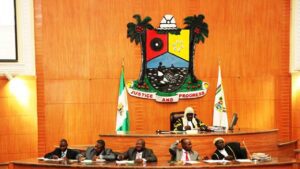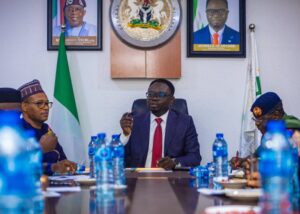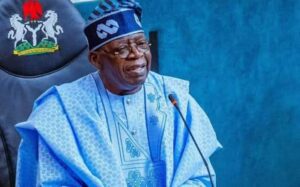
Nigerian current economic growth driven by non-oil sector — ECOWAS’ Parliamentarian
Joel Oladele, Abuja
The leader of Nigeria’s delegation of parliamentarians to ECOWAS Parliament, Ahmed Wase, has linked the current economic growth in Nigeria to the non-oil sector.
This was made known on Thursday at the presentation of the Nigeria country report by the Nigerian delegation at the ongoing 89th Ordinary Session of the ECOWAS Parliament in Abuja.
Wase noted that the economy is slowly recovering from the combined impact of the COVID-19 pandemic, the Russian-Ukraine war, insecurity, and natural disasters.
“Despite the challenges, the Nigerian economy recorded a 3.54 per cent growth in the second quarter (Q2) of 2022.
“This is a 0.43 per cent increase from Q2 of 2021 where we had a 3.11 per cent growth and a higher showing, compared to the initial market forecasts of 2.60 per cent growth.
“The current growth we see in the economy is driven by the non-oil sector with key sectors being — finance and insurance; transportation; agriculture and manufacturing; information and communication sectors.
“The oil sector, which has been the economic driver and core revenue generator for the country, has shrunken by 12 per cent. Oil production declined to 1.43 million barrels per day in Q2 of 2022, compared with 1.49 million barrels in Q1.
“The loss in production is largely attributable to oil bunkering and as a result, Nigeria has been unable to meet her OPEC+ quota this year.
“However, the country’s oil production is set to improve through the Federal Government’s collaboration with some major stakeholders in the industry to clamp down on oil theft.
“Thus, improving production and guarantying efficient export operations by the end of November 2022.”
To cushion the impact of the troubled economy, he said the Nigerian Government has leveraged on Nigeria’s international partnerships.
Speaking on the 2023 elections, Wase noted that the Independent Electoral Commission (INEC) has expressed its commitment to free, fair and credible elections, although the political situation in the country is currently charged-up with electioneering activities.
He added that the Federal Government has paid US$100,324,011.33 to the Economic Community of West Africa (ECOWAS) as community levy this year alone and it’s committed to fulfilling her financial obligations to ECOWAS as efforts are being put in place to pay up the balance for the year.
“Nigeria’s commitment to the ECOWAS Protocol on Free Movement of Persons and Goods is completely unwavering.
“In a bid to gain full realisation of the protocol, the Federal Government has introduced the Visa on Arrival (VoA) policy to expedite movement of ECOWAS members through Nigeria’s borders.
“The Federal Government of Nigeria has signed the agreement establishing the African Continental Free Trade Area, AfCFTA.
“Nigeria has equally demonstrated commitment to a gradual removal of import duties and other non-tariff barriers on imports within the African continent.
“To show the Federal Government’s commitment, the Nigerian Ports Authority has commissioned the first Export Processing Terminal (EPT) in the country.
“This is geared at enabling export-bound cargoes access to the Lagos Seaports without a glitch, in line with AfCFTA objectives.
“With this move, we believe we will encourage intra-African trade and boost regional development.” Wase said
On the security situation in the country, he noted Nigeria is currently stable, as data for Q3 shows a decline in insecurity but added that the country is still experiencing some security challenges.



